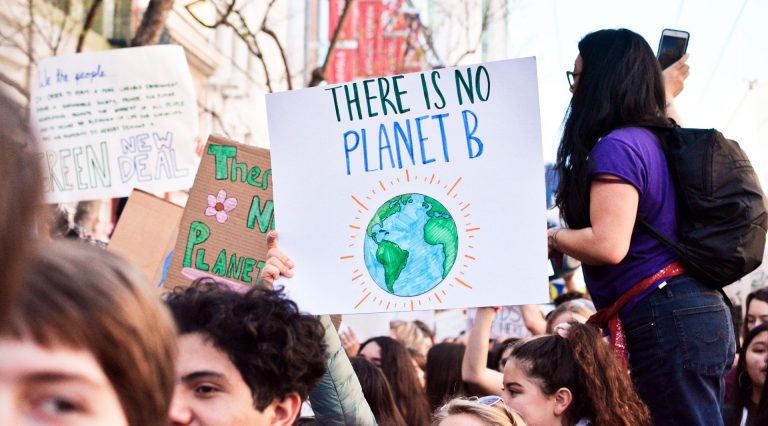Montreal, a vibrant and progressive city nestled in the heart of Canada, has stepped up to the plate in the face of escalating concerns surrounding climate change and the consequential threat it poses to our planet’s delicate ecosystem. As the devastating impacts of global warming continue to unfold before our eyes, Montreal has firmly positioned itself as a trailblazer in the battle against this pressing global crisis. Recognizing the imperative need for immediate action, Montreal has declared a climate emergency, sending a powerful message to the world that it is ready to confront the challenges head-on. The city’s proactive stance serves as a testament to its unwavering commitment to combat climate change and build a sustainable future for its residents and the generations to come. At the heart of Montreal’s approach lies a sense of urgency and determination. The city understands that time is of the essence, and swift action is vital in order to curtail the carbon emissions that are propelling climate change. With this in mind, Montreal has set ambitious goals that go beyond mere rhetoric, backed by concrete plans and an unwavering resolve to achieve them.
Montreal’s Climate Emergency Declaration:
Montreal, a city renowned for its progressive outlook and commitment to sustainability, has taken a momentous stride in addressing the pressing challenges posed by climate change. By officially declaring a climate emergency, Montreal has solidified its unwavering dedication to combatting this global crisis. This declaration not only signifies the city’s profound understanding of the gravity of the situation but also emphasizes the urgent need for immediate and decisive action. Montreal’s declaration of a climate emergency resonates far beyond its city limits, serving as an inspirational call to action for communities worldwide. By recognizing the urgency of the issue and taking a proactive stance, Montreal sets a powerful example, inspiring other municipalities to prioritize sustainability and environmental stewardship.
To reinforce its commitment, Montreal has set a remarkably ambitious target to reduce its greenhouse gas emissions. By establishing this goal, Montreal showcases its determination to confront climate change head-on and embrace transformative actions that will drive meaningful change. The city’s dedication is not confined to lofty aspirations but is supported by a robust and actionable plan, developed through collaboration with experts, stakeholders, and community members. This comprehensive roadmap outlines specific measures and initiatives to achieve the emissions reduction target, ensuring that Montreal’s commitment is backed by concrete steps. Montreal understands that addressing climate change requires a holistic and integrated approach. The city acknowledges the interconnectedness of various sectors, including transportation, energy, waste management, and urban planning. By engaging in cross-sector collaboration and fostering innovative solutions, Montreal aims to achieve its emissions reduction goal while enhancing the overall livability and resilience of the city.
Renewable energy plays a pivotal role in Montreal’s pursuit of emissions reduction. The city is actively investing in and promoting the adoption of clean and sustainable energy sources, such as solar and wind power. By embracing renewable energy, Montreal aims to reduce its reliance on fossil fuels and transition towards a more resilient, low-carbon energy system. This strategic investment not only contributes to emissions reduction but also fosters economic growth, job creation, and technological innovation within the city. Montreal’s declaration of a climate emergency and its commitment to emissions reduction go beyond mere symbolism. The city strives to translate words into actions and implement tangible measures that yield concrete results. Through strategic partnerships, policy interventions, and community engagement, Montreal lays the foundation for a sustainable future that prioritizes the well-being of its residents, the preservation of natural resources, and the safeguarding of the planet for future generations.
As Montreal assumes its role as a climate leader, it seeks to inspire other cities to join the global movement towards sustainability. By sharing its experiences, successes, and challenges, Montreal aims to foster collaboration and knowledge exchange among cities. Through collective action and a shared vision, cities can play a transformative role in mitigating the impacts of climate change and building a more equitable and resilient future for all.
Montreal’s Initiatives to Promote Sustainability
Montreal, a city renowned for its commitment to sustainability, is implementing a range of initiatives to promote a greener and more sustainable future. One of the key areas of focus is sustainable transportation, with the city actively promoting alternatives to private vehicles. Montreal recognizes that transportation is a major contributor to greenhouse gas emissions, and thus it is encouraging the use of cycling and public transit as environmentally friendly alternatives. By expanding cycling infrastructure, implementing bike-sharing programs, and improving public transportation systems, Montreal aims to reduce reliance on fossil fuel-powered vehicles, alleviate traffic congestion, and decrease carbon emissions.
In addition to sustainable transportation, Montreal is prioritizing energy efficiency in buildings as a means to reduce energy consumption and greenhouse gas emissions. The city is implementing various measures to enhance the energy efficiency of residential, commercial, and public buildings. These include the adoption of energy-efficient technologies, the promotion of green building practices, and the establishment of energy-saving guidelines and regulations. By investing in energy-efficient buildings and promoting sustainable construction practices, Montreal aims to lower its carbon footprint, improve resource efficiency, and create healthier and more sustainable urban environments.
Waste reduction is another crucial aspect of Montreal’s sustainability initiatives. The city recognizes the importance of managing waste effectively to minimize its impact on the environment. Montreal has implemented comprehensive waste management programs that prioritize recycling, composting, and proper disposal. Through educational campaigns, infrastructure development, and community engagement, the city encourages residents and businesses to actively participate in waste reduction efforts. By diverting waste from landfills and promoting a circular economy, Montreal aims to reduce greenhouse gas emissions associated with waste disposal and foster a more sustainable waste management system.
These initiatives demonstrate Montreal’s commitment to building a sustainable and environmentally responsible city. By prioritizing sustainable transportation, energy efficiency in buildings, and waste reduction, the city is taking proactive steps to mitigate the impacts of climate change and promote a greener future. Montreal’s efforts serve as a model for other cities, inspiring them to adopt similar strategies and contribute to the global fight against climate change. Through these collective actions, cities worldwide can work together to create a more sustainable and resilient planet for future generations.
Quebec’s Climate Change Plan
Quebec, a province known for its proactive approach to environmental issues, has developed a comprehensive climate change plan aimed at reducing greenhouse gas emissions and fostering sustainability across various sectors. The plan encompasses a range of measures designed to address emissions from transportation, buildings, and industrial activities, reflecting the province’s commitment to combatting climate change and transitioning to a low-carbon economy. A key focus of Quebec’s climate change plan is promoting sustainable transportation practices. The province recognizes the significant contribution of transportation to greenhouse gas emissions and aims to shift towards cleaner alternatives. One of the central strategies is encouraging the adoption of electric vehicles (EVs) by providing incentives, expanding charging infrastructure, and supporting research and development in EV technology. By increasing the uptake of EVs, Quebec aims to reduce reliance on fossil fuel-powered vehicles and decrease emissions from the transportation sector.
In line with its abundance of hydroelectric power, Quebec also emphasizes the use of renewable energy sources in industrial production. The plan aims to increase the proportion of industrial activities powered by hydroelectricity, a clean and renewable energy source readily available in the province. By transitioning industries to rely on hydroelectric power, Quebec seeks to decrease carbon-intensive energy sources, reduce emissions, and promote a sustainable industrial sector. Additionally, the Quebec government has demonstrated its commitment to sustainable transportation by announcing a ban on new gas-powered vehicles starting in the near future. This bold step sets a clear timeline for the transition towards zero-emission vehicles, aligning with the province’s long-term sustainability goals. The ban not only encourages the adoption of electric vehicles but also stimulates innovation in the automotive industry and supports the development of a robust charging infrastructure across the province.
Quebec’s climate change plan signifies its determination to tackle climate change from multiple angles. By targeting emissions from transportation, buildings, and industry, the province adopts a comprehensive approach to reducing greenhouse gas emissions. These initiatives not only contribute to mitigating the impacts of climate change but also promote economic growth, job creation, and technological innovation within Quebec. Through its climate change plan, Quebec showcases its commitment to environmental stewardship and serves as a role model for other regions seeking to address climate change effectively. By implementing sustainable transportation practices, supporting the adoption of electric vehicles, promoting renewable energy use, and setting ambitious targets, Quebec takes decisive action in the fight against climate change. The province’s efforts serve as an inspiration for governments, industries, and individuals worldwide, highlighting the importance of collective action in building a sustainable future.
Impact of Climate Change
The impact of climate change is a pressing issue that continues to be a significant concern for Montreal, and it is expected to remain at the forefront of public discourse in the years to come. The consequences of climate change, both locally and globally, are far-reaching and demand urgent attention. The costs associated with climate change are alarming, ranging from environmental degradation to economic losses and social disruptions. To mitigate these risks, governments, organizations, and communities must prioritize sustainability and take decisive action to reduce greenhouse gas emissions. Addressing the challenges posed by climate change necessitates a fundamental rethinking of established norms and practices, including the traditional concept of the suburban dream. As cities like Montreal expand, it becomes imperative to promote sustainable transportation and energy efficiency measures. This involves encouraging alternatives to private vehicles, such as cycling and public transit, to reduce carbon emissions and alleviate traffic congestion. By investing in comprehensive cycling infrastructure, enhancing public transportation systems, and implementing policies that incentivize sustainable modes of transportation, governments and organizations can contribute to a greener and more resilient future.
Furthermore, promoting energy efficiency measures is crucial in mitigating the impact of climate change. The built environment, including residential, commercial, and public buildings, is a significant contributor to greenhouse gas emissions. Governments and organizations must prioritize energy-efficient construction, retrofitting existing buildings, and adopting sustainable building practices. This includes measures such as improving insulation, implementing smart energy management systems, and incentivizing the use of renewable energy sources. By reducing energy consumption and transitioning to cleaner energy options, societies can minimize their carbon footprint and contribute to global efforts to combat climate change. The impact of climate change presents a formidable challenge that requires collective action and a commitment to sustainability. Montreal recognizes the urgency of the situation and the need for governments, organizations, and communities to work together to address climate change effectively. By prioritizing sustainable transportation, promoting energy efficiency measures, and reevaluating conventional practices, we can take meaningful steps toward a more sustainable and resilient future. It is crucial that governments, organizations, and individuals embrace their roles as stewards of the environment and prioritize long-term sustainability to mitigate the adverse effects of climate change and secure a better world for future generations.
But Montreal’s commitment to combating climate change extends far beyond transportation. The city is actively investing in renewable energy sources, such as solar and wind power, to reduce its reliance on fossil fuels. Through strategic partnerships with private companies, research institutions, and community organizations, Montreal is pushing the boundaries of innovation and technology to unlock the full potential of clean energy, paving the way for a future powered by sustainable alternatives. To support its ambitious endeavors, Montreal has allocated significant investments to fund these transformative projects. By leveraging public and private funding, the city is mobilizing resources to ensure the successful implementation of its climate action plans. These investments not only bolster the city’s resilience in the face of climate change but also stimulate economic growth, create job opportunities, and position Montreal as a hub for green innovation and sustainable development.
Promotion of Sustainable Transportation:
Montreal’s journey towards sustainability is fueled by a multitude of innovative initiatives that target various sectors and aspects of urban life. One such initiative is the transformation of transportation infrastructure, where the city aims to revolutionize the way people move by promoting the use of electric vehicles, enhancing public transit systems, and investing in cycling infrastructure. These measures not only aim to reduce greenhouse gas emissions but also improve air quality, alleviate traffic congestion, and foster a healthier and more livable urban environment.
One of the key areas where Montreal is making significant strides is sustainable transportation. The city is actively encouraging the use of public transit, walking, and cycling as alternatives to private vehicles. Montreal has expanded its public transportation system, increased the availability of bike lanes, and implemented bike-sharing programs to make eco-friendly transportation options more accessible to its residents.
Energy Efficiency and Waste Reduction Initiatives:
Montreal is also prioritizing energy efficiency and waste reduction to mitigate its environmental impact. The city has introduced various programs and incentives to encourage energy-efficient practices in residential, commercial, and industrial sectors. This includes promoting energy-saving technologies, conducting energy audits, and implementing stricter building codes.
Additionally, Montreal is taking steps to reduce waste generation and enhance recycling efforts. The city has implemented composting programs, expanded recycling facilities, and introduced waste reduction initiatives in public spaces and events. By focusing on energy efficiency and waste reduction, Montreal aims to create a cleaner and more sustainable environment for its residents.
Investment in Green Infrastructure:
Moreover, Montreal is leading by example in the realm of green infrastructure. The city is incorporating sustainable design principles into its urban planning strategies, promoting the use of green spaces, and implementing measures to enhance energy efficiency in buildings. These initiatives not only mitigate the environmental impact but also create healthier and more resilient communities that can thrive in the face of climate change.
Recognizing the vital role of green infrastructure in building resilience to climate change, Montreal is investing in the development of parks, green roofs, and urban agriculture. These green spaces not only enhance the aesthetic appeal of the city but also provide numerous environmental benefits. Parks and green roofs improve air quality, reduce the urban heat island effect, and support biodiversity.
Furthermore, urban agriculture initiatives promote local food production, reduce transportation emissions, and contribute to food security. By prioritizing green infrastructure, Montreal is creating a city that is more adaptable to climate change while also enhancing the quality of life for its residents.
Moving Forward
Montreal is taking steps to reduce its carbon footprint and become more sustainable, but there is still much work to be done. By promoting sustainable transportation, energy efficiency, and waste reduction, we can help reduce greenhouse gas emissions and improve air quality, biodiversity, and resilience to climate change. Governments and organizations need to prioritize sustainability and work together to address the issue of climate change. By working together, we can help create a brighter and more sustainable future for Montreal and the world.
To sum up, Montreal’s commitment to combating climate change and building a sustainable future is evident through its climate emergency declaration and the implementation of various initiatives. With a focus on sustainable transportation, energy efficiency, waste reduction, and green infrastructure, the city is setting an example for other cities to follow in the ongoing battle against climate change. Montreal’s unwavering commitment to combatting climate change and building a sustainable future serves as an inspiration to cities worldwide.
By taking bold steps and demonstrating the power of collective action, Montreal is showing that it is possible to confront the challenges of climate change head-on. As the city continues to forge ahead, it paves the way for a more sustainable, equitable, and prosperous future, urging other cities to join in the fight and work towards a shared goal of safeguarding our planet for generations to come.





